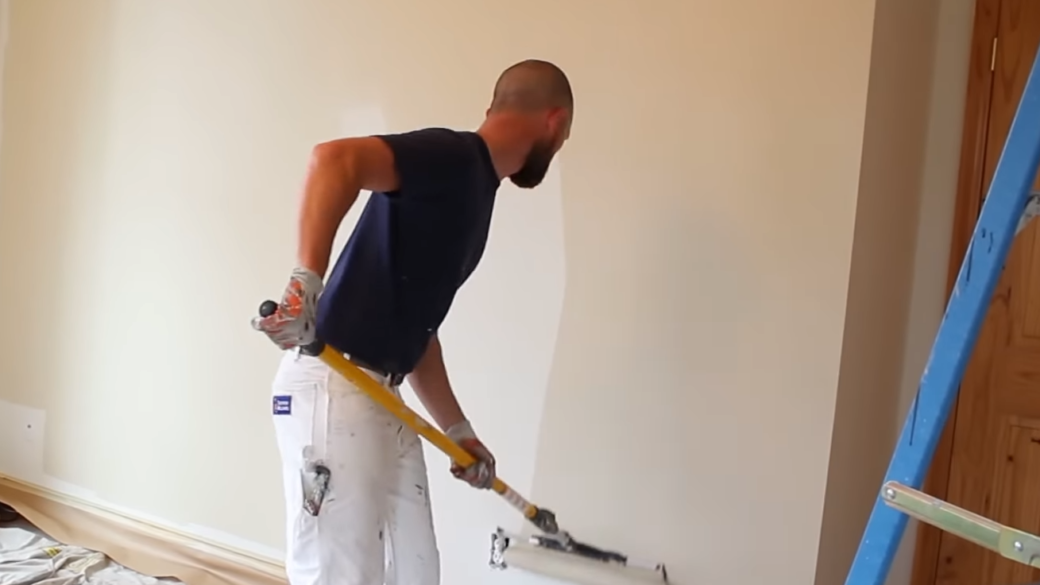Can I Be Evicted for Painting My Apartment?
A fresh coat of paint can make any living space feel like new, but if you’re renting an apartment, you might wondering “can I be evicted for painting my apartment?”
This article will explore the potential consequences of painting your apartment, why it might not be a good idea, and what to do if your lease doesn’t mention anything about painting.
So Can I Be Evicted for Painting My Apartment?
The short answer is: it depends. In most cases, tenants must obtain permission from their landlord before making any changes to their rental unit, including painting. If permission isn’t asked for, it could be a violation of the lease, which could lead to eviction. Landlords have the right to protect their property and maintain a certain standard for their rental units.
However, some landlords may be flexible and willing to allow tenants to paint their units under certain conditions. It’s best to consult with your landlord and review the lease agreement before making any changes to your apartment to avoid any legal complications.
What Happens if You Paint Your Apartment?
If you decide to paint your apartment, there could be several consequences, depending on your lease and your landlord’s preferences. Some potential outcomes include:
Eviction
To avoid eviction, follow your lease’s painting restrictions. Painting without authorization or violating the lease offers the landlord grounds for eviction. Before making any alterations to the rental apartment, check the lease and ask the landlord.
Additional Fees or Fines
The landlord may charge tenants for repainting if they cause excessive wall damage. This may involve refinishing the walls. If the renter painted the walls without permission, the landlord might charge for repainting regardless of the condition.
Loss of Security Deposit
The landlord might withhold the cost of repainting from a tenant’s security deposit if they damaged the walls. This deduction may pay the security deposit depending on the damage and repainting costs.
Legal Action
A landlord may sue a renter for serious painting damage. The renter may be sued for repairs or repainting.
Why It’s Not a Good Idea to Paint Your Apartment
Though it’s okay to paint the walls in your apartment, there are a few reasons why you may not want to, and here’s why:
Potential Damage
Painting can damage walls if done improperly, especially if the tenant lacks experience or the right tools. In such circumstances, tenants may be responsible for costly repairs.
Time and Effort
Tenants may not want to paint their flat if they’ll only be there for a short time because it’s time-consuming and laborious. Painting takes time, effort, and possibly specialized tools, in addition to the cost of materials.
Possible Disputes
Painting without permission or violating the contract might ruin the tenant-landlord relationship. Landlords can maintain properties and set rental unit standards. Tenants can be evicted for breaking leases or without getting clearance.
Can I Paint My Apartment If the Walls Are Not in Good Condition?
Before painting an apartment with walls in poor condition, tenants should check their lease agreement and consult with their landlord. Landlords are usually in charge of keeping the rental unit’s condition in good shape, and they may have rules about painting. If you paint without permission or against the terms of your lease, you could be evicted and have legal problems.
Are Landlords in Charge of Repainting?
Before a new tenant moves in, it is usually the landlord’s job to paint the walls and other parts of the rental unit. However, the lease agreement’s provisions and the extent of the damage the tenant caused may determine who is responsible for repainting during the lease term.
Landlords may also have rules or policies about painting, like requiring tenants to use only specific colors or types of paint. Tenants should review their lease agreement and consult with their landlord before making any changes to the apartment, including repainting. Failure to comply with the landlord’s policies or make necessary repairs can result in eviction and legal issues.
How Often Is a Landlord Required to Paint?
No rule says landlords have to paint rental units every so often. But landlords are responsible for keeping the rental unit in good shape and ensuring it can be lived. This includes keeping the walls painted.
The frequency of repainting may depend on various factors, such as the type of paint used, the age and condition of the walls, and the amount of wear and tear caused by the tenant. Some states require landlords to repaint rental units between tenants or after a certain number of years. Tenants who are concerned about the condition of the walls in their rental unit should consult their lease agreement and discuss any issues with their landlord.
Can my Landlord Deduct Painting From Security Deposit?
Landlords may deduct the cost of repainting from a tenant’s security deposit if the tenant causes damage to the walls beyond normal wear and tear. Normal wear and tear include minor scuffs, fading, or discoloration that occurs over time from regular use.
However, if a tenant has painted the walls without the landlord’s permission or if the tenant used a color that is not approved by the landlord, the landlord may deduct the cost of repainting from the security deposit. It’s important for tenants to review their lease agreement and know their rights regarding security deposits. State law says that the landlord must give an itemized list of any deductions and return the rest of the security deposit within a certain amount of time.
What to Do if Your Lease Doesn’t Mention Anything About Painting
Tenants should seek permission from their landlord before painting if the lease agreement does not mention anything about it. Landlords have the right to maintain their property and may have specific rules and regulations. If the landlord approves, tenants should clarify any restrictions.
If not, tenants should avoid making changes to the apartment to avoid eviction. Here are some steps you can follow to communicate with your landlord:
Contact Your Landlord
Tenants should consult their landlord before painting a rented apartment. This clarifies the landlord’s expectations and prevents misunderstandings.
Tenants should include project information like colors and scope when obtaining clearance. They should also explain how they would use drop cloths and other steps to protect the rental unit during the project.
Get Approval in Writing
To avoid problems, tenants should get formal permission from landlords to paint their rental units. The written agreement should specify the project’s scope and any paint color limits. Specifying whether the tenant will paint the walls before leaving is vital.
Document the Current Condition
Before painting, take photos of the rental unit to document the walls and property. This documentation may be useful if the renter is accused of damaging or changing the rental unit without consent.
If you get Approval to Paint your Apartment, make sure to Paint your Wooden Floors!
Painting your wooden floors can make a much bigger difference than you think. You need to make sure you’re using the best paint though. Tough shield floor and patio paint can will ensure your wooden floor can withstand heavy friction for years.
If you have young children however, the most sensible paint for your wooden floor would be paint with a skid grip. Anti-slip paint will help stop your children from slipping on your wooden floors when they’re running around your house.
Conclusion
Painting your rented apartment can be a great way to add a personal touch and make the space feel like home. However, it’s essential to obtain permission from your landlord before making any changes to avoid potential legal or financial consequences.
Even if your lease doesn’t prohibit painting, it’s still important to consider the potential for damage, time and effort, and possible disputes with your landlord. Before beginning any painting project, tenants should reach out to their landlords to discuss their plans and request permission. If the landlord agrees, tenants should obtain written approval and clarify any restrictions.
By doing these things and talking to the landlord well, tenants can help build a good relationship and ensure that any work needed is done smoothly and quickly. This should hopefully give you some clarification when asking yourself the question “can I be evicted for painting my apartment?”


